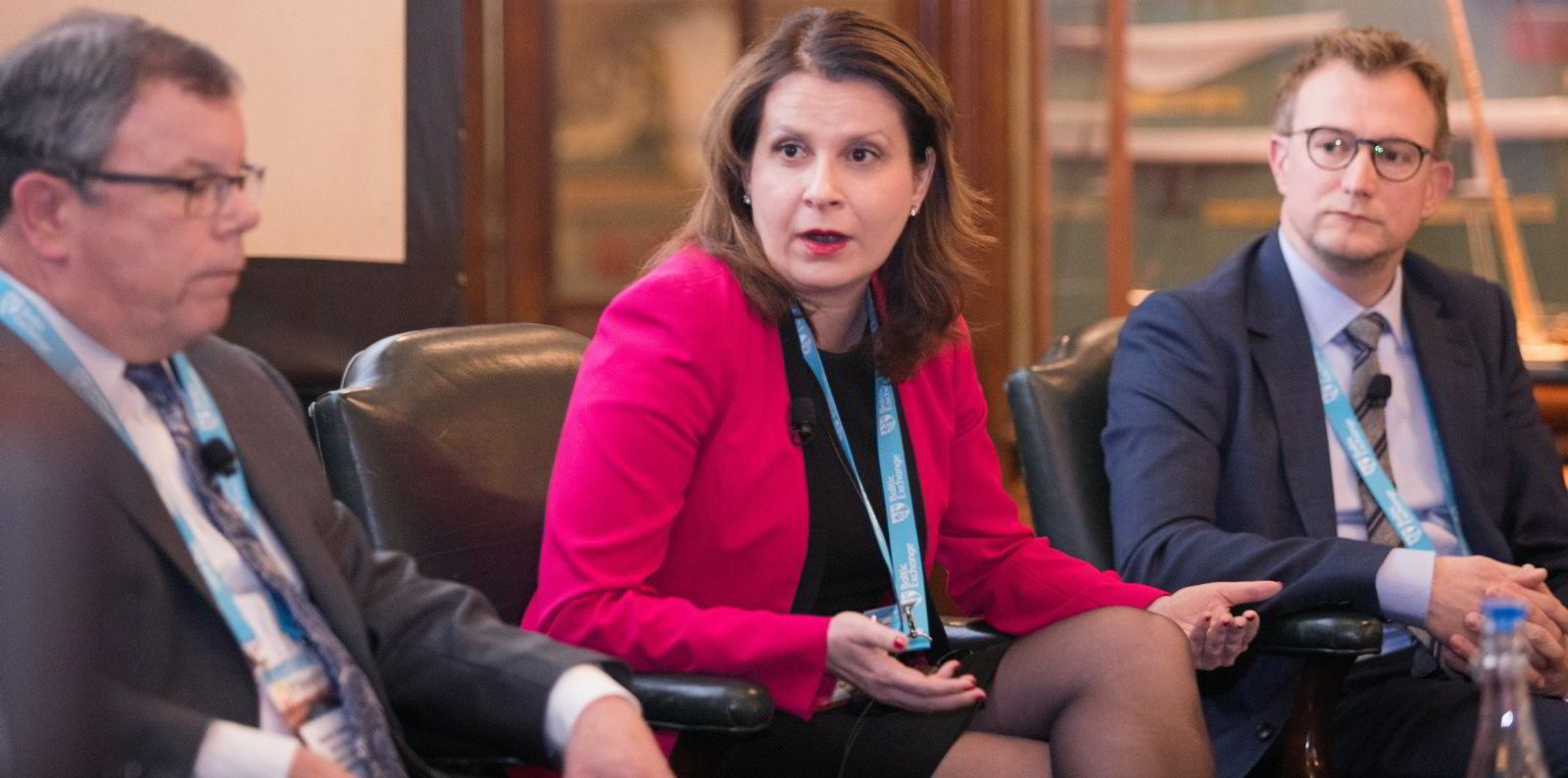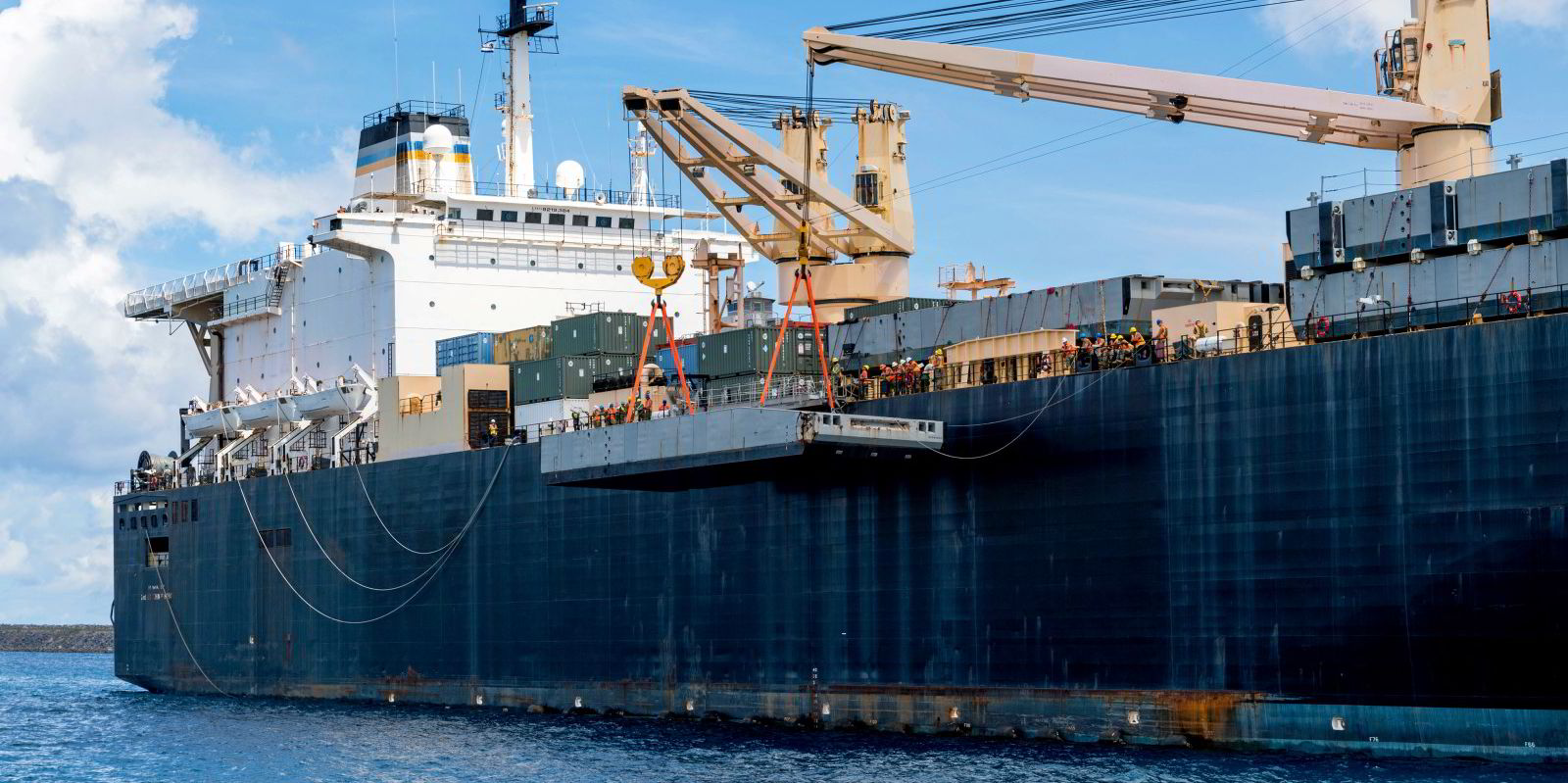The US Coast Guard is seeing a rise in reports of sexual misconduct in shipping after action by Congress revamped the agency’s policies.
Rear Admiral Wayne Arguin, the assistant commandant for prevention policy, told TradeWinds that reports incidents of sexual harassment and sexual assault are increasing.

This is in addition to the increasing number of US-flagged shipping companies notifying the agency about the reports they receive following the enactment of last year’s Safer Seas Act, which mandates such notifications.
“We’re seeing a significant increase in reports, which I would attribute to at least a sense of trust that, once those reports come in, there will be something done with those reports,” Arguin said on the sidelines of the Connecticut Maritime Association’s Shipping 2024 conference.
“The individual mariners are happy that there are outlets for them to seek some sort of adjudication on a particular situation that is challenging them.”
Arguin said another contribution to the growing reporting is that the agency has engaged with maritime academies and the shipping industry over the past year on sexual misconduct.
Sexual assault and harassment in shipping has increasingly become a high-profile topic in the US merchant marine, particularly since a 2021 blog post by a US Merchant Marine Academy cadet, known then as Midshipman X, detailed her alleged rape while serving on board a Maersk Line vessel.
Congress responded last year with the Safer Seas Act, which requires shipping companies to inform the Coast Guard of sexual misconduct reported by their seafarers and to install surveillance systems on their ships, among other mandates. The law also established clearer definitions of sexual assault and harassment.
Arguin expressed confidence that the Coast Guard has the staff to tackle the mounting reports and to investigate cases.
“I think that we have invested in the right skill sets to be able to continue those investigations and make sure that we have regular contact with the reporting victim or survivor to ensure that they’re informed of how that’s progressing,” he said.

Arguin acknowledged that investigating such cases is challenging, with some cases boiling down to “one person’s perspective against another”.
But Arguin said seafarers are also reporting incidents more quickly. In the past, victims would sometimes report incidents four years after they happened.
Receiving reports sooner allows investigators to build a better case to either refer to the US Justice Department for prosecution or to initiate a case to suspend or revoke the accused mariner’s licence, the official said.
Industry reaction
Arguin is pleased by the industry’s reaction to the new policies.
“The feedback we get from talking to individual mariners is positive — maybe positive to somewhat guarded,” Arguin said. “They’re waiting to see … does it change what’s happening culturally within an individual ship or within a company.”
Boriana Farrar, the vice president and chief legal officer at US-flag ship manager Patriot Contract Services, told TradeWinds that her company has been working extensively to implement the new regulatory requirements and has integrated them into its safety management system.
“Overall, the recent legislation is a very positive step to eliminate sexual harassment on board ships,” she said.
But she echoed concerns that have been expressed in the US-flag shipping sector about the Safer Seas Act’s requirements for reporting harassment, which is not as clearly defined in the legislation as sexual harassment.
“Further clarification from the Coast Guard will be helpful to define harassment, which is a much broader term, as sexual harassment,” Farrar said. “It also will be helpful to have specific requirements on timing for reporting and balance the factors of urgency and at the same time accuracy of reporting.”
Unclear size of the problem
When asked how big a problem sexual assault and harassment is in shipping, Arguin could not say, but he believes new data could lead to a clearer picture.
He said it is a good thing that the Coast Guard was given oversight over the vessel operators’ disclosure of the sexual harassment reports that are handled by companies’ internal investigations.

“Before, we didn’t have that visibility. An individual company could have gone through their own HR investigations, determined an individual was not really conducive to their business model and terminated their employment. That person then walks down the pier with an active credential and then gets hired in a different location,” he said.
“Now we have that visibility and if there is a termination for that type of activity, we can evaluate whether there needs to be some action taken against the credential.”
Mariner advocates complain that there have been no criminal prosecutions of seafarers accused of sexual assault against their coworkers or cadets.
Asked if the Coast Guard could form a better partnership with the Justice Department, Arguin said that there needs to remain a clear line between his agency’s role of building a case and a prosecutor’s role in taking it forward.
But he said the agency is seeking to engage with the Justice Department, and in the cases handled by judges, to figure out what is missing in cases that do not go forward after Coast Guard investigators refer them for prosecution.
If there is sufficient evidence to prosecute an accused abuser, Arguin said he is looking forward to seeing them held criminally accountable.
“I think that will also send a message,” he said. “But we need to preserve that line between adjudication and investigation.”




